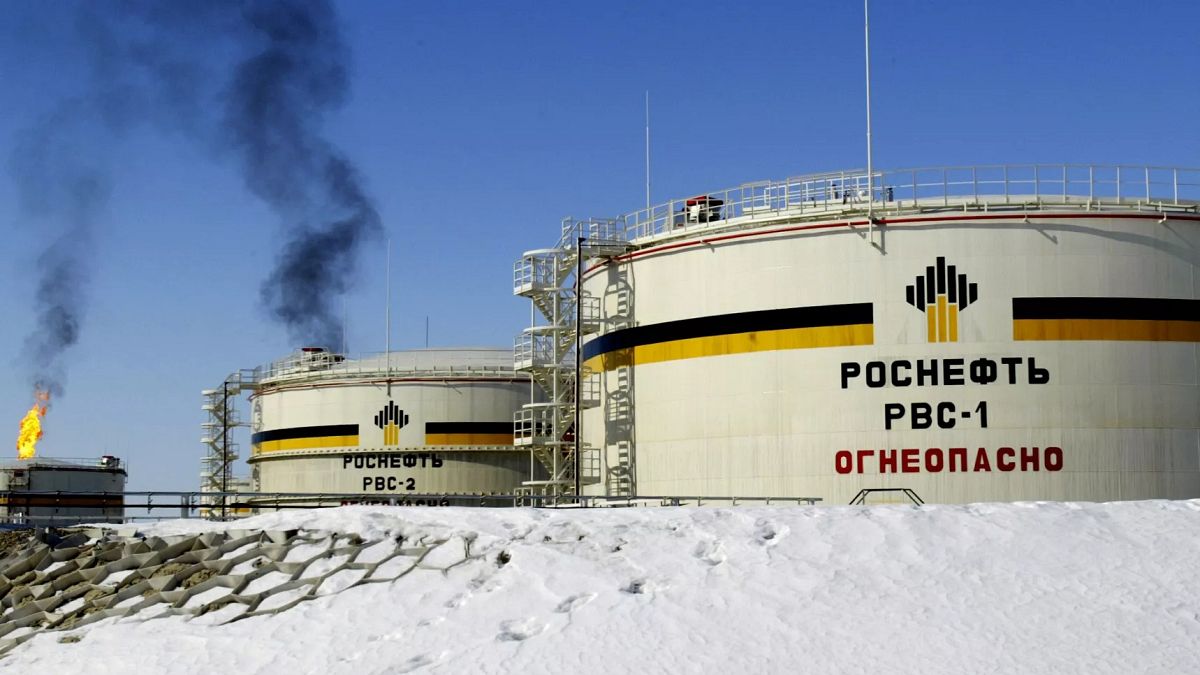Published on
•Updated
Oil prices surged on Thursday after the US administration announced sweeping sanctions targeting Russia’s two largest oil companies, Rosneft and Lukoil.
The international benchmark, Brent crude, rose by 5.24% to around $65.87 per barrel at around midday, building on a 2% gain the previous day. WTI, meanwhile, rose by 5.68% to $61.82.
The sanctions freeze all US-based assets of Rosneft and Lukoil and bar American firms and citizens from doing business with them. In addition, authorities warned that foreign banks and firms dealing with these companies may face so-called “secondary sanctions”, which could ripple through global oil trade flows.
The administration said sanctions were a result of lacklustre progress on the part of the Kremlin despite repeated attempts by US President Donald Trump to secure a lasting peace deal for Ukraine.
“The US Department of the Treasury’s Office of Foreign Assets Control (OFAC) is imposing further sanctions as a result of Russia’s lack of serious commitment to a peace process to end the war in Ukraine,” the treasury said in a statement.
The move is an attempt to “increase pressure on Russia’s energy sector and degrade the Kremlin’s ability to raise revenue for its war machine and support its weakened economy,” the statement continued.
Russia is among the world’s major crude oil exporters. Disruptions or restrictions on its output or exports ripple into global seaborne-oil markets, of which the North Sea-derived Brent is the benchmark.
Supporting the US effort, the EU adopted a new raft of sanctions against Russian energy trade on Thursday, banning LNG imports from 2027. The bloc has also placed a transaction ban on firms Rosneft and Gazpromneft.
Scarcity and increased premiums
Countries that normally buy a lot of Russian oil — like India — might buy less of it because of new US sanctions, and that potential reduction in buying could have knock-on effects for the global oil market.
Since Russia’s invasion of Ukraine, India has become the biggest buyer of discounted seaborne Russian crude, importing around 1.7 million barrels per day in the period from January to September this year.
The measures threaten not only Russian producers but also the banks, insurers, and shippers that facilitate exports, raising the legal and financial risk of handling those barrels. Even before physical flows change, that uncertainty is reflected in higher benchmark prices.
Any pullback by, say, Indian refiners does not mean Russian oil disappears but it does mean more of it becomes difficult to move through normal, Western-linked channels.
Without ready access to financing, insurance, or willing tankers, some Russian crude is effectively stranded or must be rerouted at steep discounts and longer voyage times.
Those frictions reduce the pool of freely tradeable barrels that can quickly reach global refiners.
With fewer readily available seaborne supplies, traders price in a geopolitical risk premium.

